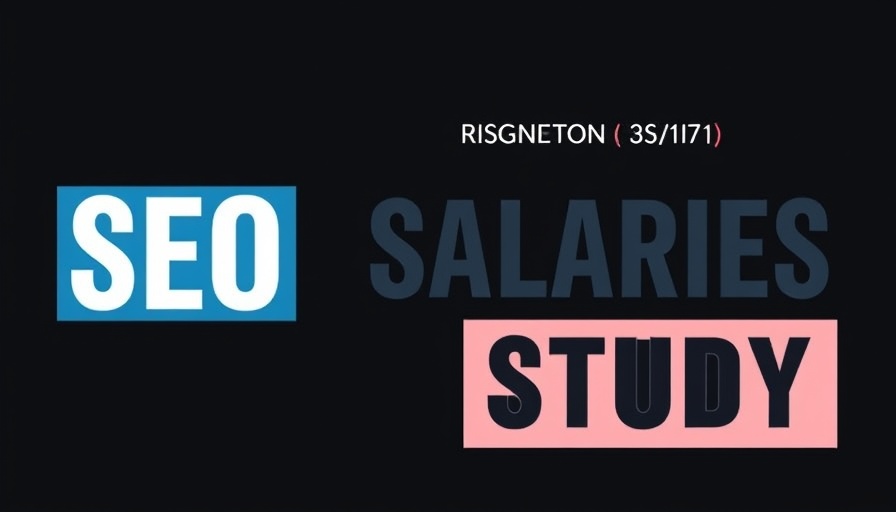
Freelance vs. In-House SEO Salaries: A Comprehensive Analysis for 2025
As the digital landscape continues to evolve, so too do the salaries of those who navigate it. The latest findings from a 2025 global survey highlight intriguing disparities between freelance SEO professionals and their in-house counterparts. While the average income of an SEO professional varies significantly by location and work model, insights from the survey indicate a noteworthy trend: on a global scale, freelancers tend to earn more than their in-house peers—by a median of 14.4%, to be precise.
Decoding the Salary Disparities
At first glance, the statistics paint a clear picture: freelancers earn a median annual salary of $58,000 compared to $50,675 for in-house SEOs. However, this generalization does not hold across all regions. For instance, in the European Union, freelancers enjoy a commanding 28.6% higher median income than in-house employees. This disparity arises from a market that more frequently rewards independent work, positioning freelancers as potentially more lucrative earners.
In contrast, the situation in the United States flips the narrative. Here, freelancers earn, on average, 25% less than in-house SEOs, with the traditional employment model providing superior financial rewards. This anomaly underscores the importance of understanding regional dynamics when it comes to SEO compensation.
Job Satisfaction: Freelancers vs. In-House SEOs
Income isn't the only measure of success—job satisfaction plays a crucial role in the overall happiness of professionals in this field. Notably, nearly 40% of freelancers believe their earnings are competitive, compared to just 24% of those employed in-house. The UK emerges as a particularly optimistic region, where half of freelancers feel positively about their earning potential. These sentiments do not necessarily correlate linearly with income; rather, they highlight the value freelancers find in greater autonomy and flexibility.
Interestingly, job satisfaction levels in the U.S. appear nearly equal across both models, suggesting that factors other than income—such as work-life balance and flexibility—play critical roles in determining an SEO professional's contentment.
The Impact of Working Hours on Earnings
The work schedule also significantly influences earnings. The survey reveals that only 13.7% of freelancers adhere to a standard 40-hour workweek. Conversely, half of in-house SEOs do maintain this traditional structure. Many freelancers choose to work part-time, valuing the freedom that comes with setting their own schedules. Strikingly, freelancers working just 20 hours a week can earn around 64% more than their in-house counterparts who work full-time.
In stark contrast, full-time in-house SEOs earn 18% more than freelancers in similar roles, illustrating how the amount of time worked directly correlates with potential earnings. This complexity invites businesses and agencies to reconsider how they approach compensation packages tailored for different SEO roles.
Future Predictions: What Lies Ahead for SEOs?
With the ongoing advancements in AI technologies, the SEO landscape is poised for transformative changes. As the demand for effective digital marketing strategies grows, businesses may increasingly shift towards hiring SEO experts—whether in-house or freelance. The rise of AI tools and automated platforms offers opportunities for professionals to enhance their productivity and expand their capabilities, potentially leading to higher earnings.
Moreover, as businesses lean toward data-driven decision-making, understanding the dynamics of SEO salaries will be crucial for employers looking to attract top talent. Hence, navigating these shifts proactively may offer both marketplaces an edge, whether they are freelancers or agency-based.
Embracing New Opportunities in SEO
For both freelancers and in-house SEOs, the key takeaway from the current landscape lies in adaptability and a willingness to leverage technology for enhanced results. By embracing AI-driven tools, both categories of professionals can improve their output while potentially commanding higher salaries.
In conclusion, as small business owners and marketers look to enhance their SEO strategies, understanding the interplay between freelancing and traditional employment can provide pivotal insights for shaping their marketing efforts. Those investing in SEO resources now may find themselves better equipped to navigate the complexities of this dynamic digital realm.
Take Action: To thrive in the ever-shifting landscape of SEO, consider examining your current strategies and evaluating whether a freelance approach or in-house hiring would best serve your goals. Stay informed, adapt early to emerging trends, and be sure to explore AI-driven solutions that can refine your marketing efforts.
 Add Row
Add Row  Add
Add 




Write A Comment